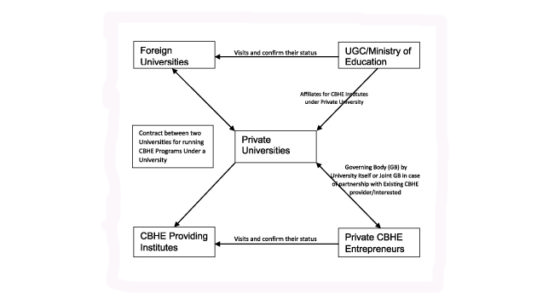
In today’s world of improved health, wealth and technical advances, we are still faced with billions of people suffering from a lack of good nutrition. Right now, approximately one billion women and girls do not have access to good nutrition, hindering their ability to live their lives to the fullest, stopping them from learning and earning!
A diet lacking in good nutrition holds everyone back – from education, opportunity, productivity and growth. Surveys of nutritional status frequently demonstrate chronic shortages of micronutrients (i.e. iron, folic acid and calcium) not only in a women’s earlier years but extending through into later life. As women, many of us are frequently prone to neglecting our own dietary needs. We may feel that we’re too busy to eat well or used to putting the needs of our family before our own. Women’s specific needs are often neglected by dietary research, too. Besides these some low-energy diets, slimming regimes, eating disorders etc. make women even more vulnerable to nutritional inadequacies. By eating well at every stage of life, we can control cravings, manage our weight, boost our energy, and look and feel our best!
Here are some key nutrients that young adult women need to pay attention to:

FOCUS ON HEALTHY FOODS
Eating a rainbow of fruits and vegetables, along with whole grains, protein andhealthy fat will help ensure you get the recommended amount of each essential nutrient.
Diets rich in fruits and vegetables, good quality protein and healthy fats can help control your weight and reduce your risk for certain diseases. Carotenoids rich fruits and veggies, such as tomatoes, carrots, sweet potatoes, melons, and peppers, may even reduce your risk for breast cancer. Add leafy green vegetables and a variety of whole grains, beans, and other legumes to give you filling fiber and keep you going throughout the day.
If you have dietary restrictions or a condition like inflammatory bowel disease (IBD) that makes it harder for your body to absorb nutrients, talk to your Nutritionist about how to make sure you get all you need.
Some of us have often tried to make up deficits in their diet through the use of vitamins and supplements. However, while supplements can be a useful safeguard against occasional nutrient shortfalls, they can’t compensate for an unbalanced or unhealthy diet. Always consult with your Dietitian before buying supplement to make sure you get the right supplement that best fit your needs.
FOLIC ACID-AMAIZING NUTRIENT
Folic acid is widely known very important nutrient for the development of a healthy fetus, but it’s not just for pregnant women. Folic Acid, also known as folate or Vitamin B9, has multiple health benefits for women of all ages. Studies have shown that folic acid helps forming new blood cell and create DNA. It may help prevent heart disease, depression, Alzheimer’s disease, type-2 diabetes, and even some forms of cancer.
Folic Acid is found in foods such as leafy greens, lentils, beans, nuts, seeds and fruits like papaya, banana, orange, and strawberry.
Other B Vitamins:
These other B vitamins are also important for energy production and cell growth:
- B-1 (thiamine): from fortified cereal, fish, beans, peas, and sunflower seeds
- B-2 (riboflavin): from eggs, organ meats, breakfast cereals, and dairy foods
- B-3 (niacin): from poultry, beef, and fish
- B-6 (pyridoxine): from beef, fish, fortified cereals, and chickpeas
- B-7 (biotin): from beef, fish, eggs, avocados, sweet potatoes, and nuts
IMPORTANCE OF IRON & ZINC
Many women don’t get enough iron in their diet. On top of that, women lose a lot of this important mineral during menstruation and hence are at risk of iron-deficiency anemia. It is important for them to eat those foods that are not only rich in iron but are also eaten in significant quantities and from which iron is reasonably well absorbed. Dietary sources of vitamin C are also significant because they improve the absorption of non-haem iron.Pairing a good source of iron, such as chicken or beans, with a Vitamin C source such as lemon/lime at a meal will maximize absorption.
While you do need iron, don’t overdo it. Excess iron can cause:
- constipation
- nausea
- belly pain
- vomiting
Another Micronutrient-Zn is needed to maintain the health of cells. Taking iron supplements may interfere with the absorption of zinc, so women taking iron supplements should continue to eat iron-rich foods, which are also a good source of zinc.
CALCIUM, MAGNESIUM AND VITAMIN D FOR STRONG BONES
Among other things, you need calcium to build healthy bones and teeth, keep them strong as you age, regulate the heart’s rhythm, and ensure your nervous system functions properly. Calcium deficiency can lead to, or exacerbate, mood problems such as irritability, anxiety, depression, and sleep difficulties. If you don’t get enough calcium in your diet, your body will take calcium from your bones to ensure normal cell function, which can lead to weakened bones or osteoporosis. Women are at a greater risk than men of developing osteoporosis, so it’s important to get plenty of calcium, in combination with magnesium and vitamin D, to support your bone health. Most common dietary sources of Calcium are milk, cheese, yogurt and green vegetables.
Magnesium increases calcium absorption from the blood into the bone. In fact, your body can’t utilize calcium without it. The USDA recommended daily allowance for magnesium is 320 to 400 mg/day. Good sources include leafy green vegetables, summer squash, broccoli, cucumber, green beans, celery, and a variety of seeds.
Vitamin D works as calcium’s partner to promote healthy bones. Many women in their childbearing years are short on vitamin D. Some of our supply of this vitamin comes from dairy foods like milk and cheese. The rest, our body makes when our skin is exposed to sunlight. And the food sources included fatty fish such as salmon, tuna, fortified milk, cheese, and egg yolks. You don’t want to get too much of this nutrient, though. In very high amounts, vitamin D can raise blood levels of calcium and high calcium could damage your heart, blood vessels, and kidneys.
VITAMIN E
Vitamin E is a nutrient that’s important to vision, reproduction, and the health of your blood, brain and skin.Vitamin E also has antioxidant properties. Foods rich in vitamin E include canola oil, olive oil, almonds and peanuts. You can also get vitamin E from meats, dairy, leafy greens and fortified cereals. Vitamin E is also available as an oral supplement in capsules or drops. Natural vitamin E is more potent than its synthetic version. Very high supplement doses could increase bleeding, especially if you’re already taking blood thinner like warfarin.
Vitamin E can be absorbed even better when combined with vitamin C.
CHOLINE
Choline, a nutrient; most of us don’t get enough of! Research about choline’s connection to health has boomed in recent years. It is important to women of all ages. Research shows choline plays critical role in pregnancy. Just as vitamin D plays a supportive role in calcium absorption, choline helps omega-3 fatty acids and B vitamins such as folate function as they should.
You need choline to keep your cells structurally sound. This essential nutrient also helps your body produce the chemical messenger acetylcholine, which is important for mood, memory, brain health and muscle control. Choline helps move fat out of the liver, helping prevent nonalcoholic fatty liver disease. Choline is needed for the brain to signal working muscles during exercise time. Include a variety of meats and green vegetables in your diet to help you meet your choline needs. To get more choline, choose egg-based dishes. Beef, chicken and fish, as well as Brussels sprouts and broccoli, also contain some choline.
CONSIDER EATING SOY
Soy products are high in phytoestrogens, plant-based estrogens that are similar to estrogen produced by the body. Some studies suggest that soy may help manage menopausal symptoms. Try natural soy sources such as soy milk, soy biscuits, tofu, and soy nuts.
Let’s celebrate womanhood by promising to be healthy women through providing good nutrition to the body. Whatever your age, whatever you do, committing to a healthy diet will help you look and feel best so that you stay on top of your commitments and ENJOY LIFE!!
Shabnam Mostafa is a Nutrition Consultant for SureCell Medical [BD] Ltd. She did her graduation in Food and Nutrition from Khulna University and later did M.phil in Nutrition and Food Science from the Institute of Nutrition and Food Science from Dhaka University. Trained in Malaysia, Shabnam also worked for Food and Agriculture Organisation as a Research Assistant.


